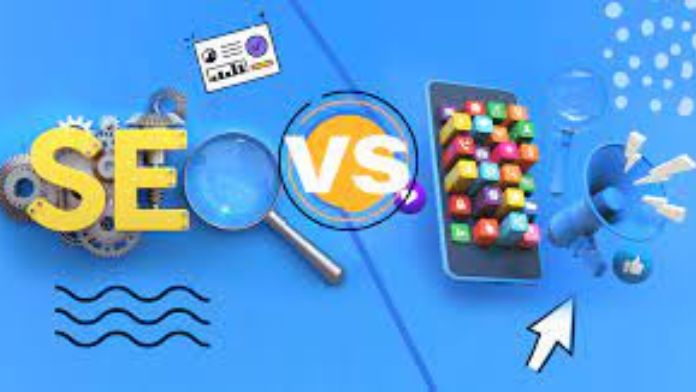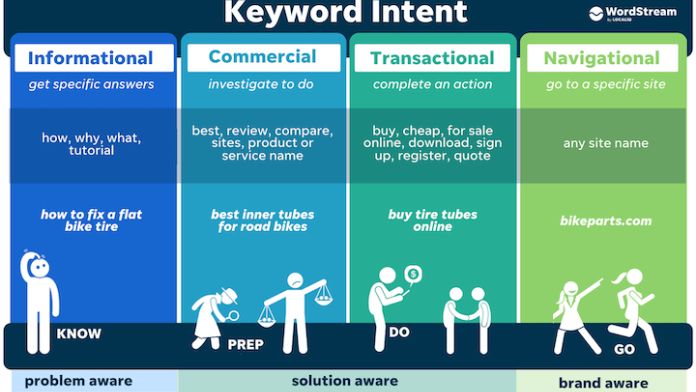Social Media SEO
How to Maximize Your Social Media Presence?
Search engine optimisation enables users to find the information they need and use the tools they have. Understanding social and web marketing's impact on search engines will be helpful and efficient for both marketing and the customer. Social networks that generate more than one hundred comments or shares usually perform very well in search engines because they are highly liked.
What is Social Media SEO?
Social Media SEO refers to using social media platforms to improve a website's search engine optimization (SEO) performance. Social media can indirectly impact SEO by driving traffic to a website, increasing brand visibility, and improving brand authority and credibility.
When a website's content is shared on social media, it increases its reach and visibility, leading to more shares, backlinks, and traffic to the website. This can improve the website's rankings, as search engines consider the number of backlinks and social shares as indicators of the website's authority and relevance.
Social media can also engage with audiences, build relationships, and create user-generated content, improving a website's credibility and authority. Engaging with industry influencers on social media can also help to build brand authority and increase backlinks to a website.
In summary, social media can indirectly impact SEO by improving website visibility, authority, and credibility, leading to higher search engine rankings and increased organic traffic to a website.
How do they work together to Boost Your Visibility?
Boosting your visibility involves increasing the exposure of your brand, product, or service to your target audience. There are several ways that different elements can work together to achieve this goal.
Firstly, a well-designed website with SEO-optimized content can improve your website's ranking on search engine results pages. This will increase the likelihood of potential customers finding your website when they search for keywords related to your business.
Secondly, social media platforms can reach a wider audience through targeted advertising, engaging followers, and sharing valuable content.
Thirdly, collaborations with other businesses, influencers, or industry experts can expand your reach and increase your credibility.
Fourthly, customer reviews and testimonials can enhance your visibility by providing social proof to potential customers.
Finally, a cohesive and consistent brand message across all channels can help to build brand recognition and increase customer trust.
By utilizing these different elements, businesses can boost their visibility and attract new customers to their brand.
7 Ways Social Media Can Improve Your SEO Results
Social media can significantly improve your SEO results by driving traffic to your website and increasing your brand visibility. Here are seven ways social media can enhance your SEO results:
Social media profiles can rank in search engine results pages (SERPs), providing additional opportunities for your brand to appear in search results.
Social media platforms can increase your content's reach and visibility, leading to more shares, backlinks, and traffic to your website.
Engaging with your audience on social media can increase brand recognition and customer loyalty, leading to more branded searches and direct traffic to your website.
Sharing your website content on social media can improve its visibility and increase the chances of it being shared and linked to by others, enhancing your website's search engine rankings.
Social media can provide valuable user-generated content, such as customer reviews and testimonials, improving your website's credibility and authority.
Social media can help you identify and engage with industry influencers who can share your content and link to your website, improving your website's authority.
Social media can help you stay up-to-date with industry news and trends, informing your content strategy and improving your website's relevance in search results.
Do social media shares and likes improve Google rankings?
The relationship between social media shares and likes and Google rankings is complicated. While Google has stated that social media signals are not a direct ranking factor, there is evidence that social media activity can indirectly impact rankings.
When content is shared on social media platforms, it can increase its visibility and attract backlinks, which are both factors that can improve Google rankings. Social media shares and likes can also increase a website's click-through rate, which can signal to Google that the website is providing valuable content and improving its rankings.
However, it's important to note that not all social media signals are created equal. Shares and likes from reputable sources with a large following are likely to carry more weight than those from low-quality or spammy sources. Additionally, the context of the social media activity and how it relates to the content on a website can also impact its effect on Google rankings.
Overall, while social media shares and likes are not a direct ranking factor, they can indirectly impact Google rankings by increasing visibility, attracting backlinks, and improving a website's click-through rate.
What are the best social media websites for SEO?
Social media can be a valuable tool for improving your website's SEO. It can increase your brand visibility, drive traffic to your site, and help you build high-quality backlinks. Here are some of the best social media websites for SEO:
Facebook: With over 2 billion active users, Facebook can be a powerful platform to share your content and drive traffic to your website. It also allows you to create a business page, which can help improve your online presence and search engine rankings.
Twitter: Twitter can help you build brand awareness, connect with influencers in your industry, and promote your content to a wider audience. It can also be a great platform for sharing news, updates, and announcements.
LinkedIn: LinkedIn is a professional networking platform that can help you build authority in your industry, connect with other professionals, and promote your content to a targeted audience. It also allows you to create a company page, which can help improve your online visibility and search engine rankings.
Instagram: A visual platform can help you showcase your products or services, build brand awareness, and engage with your audience. It also allows you to use hashtags, which can help improve your reach and discoverability.
Ultimately, the best social media websites for SEO will depend on your specific goals and target audience. It's important to choose the most relevant platforms for your business and focus on building a strong, engaged following.
Ten reasons why social media is important in SEO
Social media has become an essential component of any successful SEO strategy. Here are ten reasons why social media is important in SEO:
Increased visibility: Social media platforms allow businesses to increase their visibility and reach a wider audience, which can help improve their search engine rankings.
Building backlinks: Sharing your website content on social media can help you build high-quality backlinks, a crucial factor in SEO.
Brand recognition: Social media can help you build brand recognition and establish your brand as a thought leader in your industry.
Targeted audience: Social media platforms allow you to target specific demographics, interests, and behaviours, which can help you reach a more relevant audience.
Increased engagement: Social media can help you engage with your audience, build relationships, and encourage social shares, which can contribute to improved SEO.
Real-time feedback: Social media provides real-time feedback and insights into your audience's likes and dislikes, which can help you improve your content and SEO strategy.
Faster indexing: Social media can help index your website faster by search engines, improving your search rankings.
Increased website traffic: Social media can drive traffic to your website, which can improve your SEO and help you reach your business goals.
Improved local SEO: Social media can help you improve your local SEO by allowing you to promote your business to local audiences.
Competitive advantage: Social media can help you gain a competitive advantage by allowing you to monitor your competitors, identify trends, and stay ahead of the curve in your industry.
How does social media affect SEO?
Social media can have a significant impact on SEO. Sharing your website content on social media platforms can drive traffic, build high-quality backlinks, and increase your online visibility. Social signals, such as likes, shares, and comments, can also influence search engine rankings, indicating that your content is engaging and valuable to your audience. In addition, social media can help you build your brand, establish authority in your industry, and improve your local SEO. Overall, a strong social media presence can help improve your SEO, drive more traffic to your website, and increase your online visibility.
How Does Social Media Connect with SEO?
Social media and SEO are interconnected in several ways. Here are some ways social media can connect with SEO:
Social media can drive traffic to your website, which can improve your website's search engine rankings.
Social media can help you build high-quality backlinks by sharing your website content on social media platforms.
Social media can improve your online visibility, making it easier for search engines to find and index your website.
Social media engagement, such as likes, shares, and comments, can impact your search engine rankings by indicating that your content is engaging and valuable to your audience.
Social media profiles can appear in search engine results, increasing your online presence and driving more traffic to your website.
Social media can help you build your brand and establish authority in your industry, which can improve your search engine rankings over time.
Social media can play a vital role in your SEO strategy by helping you increase website traffic, build high-quality backlinks, improve online visibility, and engage with your audience. By integrating social media into your SEO strategy, you can achieve greater success in your online marketing efforts.
How do you combine SEO and Social Media For Better Results?
Combining SEO and social media can help you achieve better results in your online marketing efforts. Here are some ways to do it:
Optimize your social media profiles: Make sure your social media profiles are complete and optimized with relevant keywords to improve your online visibility and search engine rankings.
Share your website content on social media: Share your content on social media platforms to drive traffic, build high-quality backlinks, and improve your search engine rankings.
Use social media for keyword research: Use social media platforms to identify relevant keywords, trends, and popular topics among your target audience.
Engage with your audience on social media: Engage with your audience on social media platforms by responding to comments, answering questions, and sharing valuable content, which can improve your online reputation and search engine rankings.
Monitor your social media analytics: Monitor your social media analytics to identify which content performs best, which platforms drive the most traffic, and which keywords are most relevant to your audience, which can help you refine your SEO strategy.
Use social media to build relationships with influencers - Build relationships with influencers in your industry by engaging with them on social media platforms, which can help you gain valuable backlinks and improve your online reputation.
Overall, combining SEO and social media can help you achieve better results by driving more traffic to your website, building high-quality backlinks, improving your online visibility, and engaging with your target audience. By integrating social media into your SEO strategy, you can achieve greater success in your online marketing efforts.
Is Social Media a Google Ranking Factor?
While Google has not confirmed that social media is a direct ranking factor, evidence suggests that social media signals can indirectly impact search engine rankings.
Sharing your website content on social media platforms can drive more traffic, improving your website's engagement metrics, such as bounce rate and time on site. These engagement metrics can indirectly impact search engine rankings, indicating that your website provides valuable content to your audience.
Additionally, high-quality backlinks from social media profiles can indirectly impact search engine rankings, improving your website's authority and reputation in your industry.
Furthermore, social media profiles can appear in search engine results, increasing your online presence and driving more traffic to your website.
While social media may not be a direct ranking factor, it can indirectly impact search engine rankings by improving your website's engagement metrics, building high-quality backlinks, and increasing your online presence.
The importance of SEO for social media
SEO is important for social media because it helps ensure that your content is discoverable, engaging, and valuable to your target audience. Here are some reasons why SEO is important for social media:
Increased visibility: SEO can help increase the visibility of your social media profiles, making it easier for users to find and follow your brand on social media platforms.
Improved engagement: SEO can help improve the attention of your social media content by ensuring that it is optimized for relevant keywords, topics, and trends that are popular among your target audience.
More traffic: SEO can help drive more traffic to your social media profiles, increasing your brand awareness and reach on social media platforms.
Better targeting: SEO can help you target your social media content to specific audiences using relevant keywords, hashtags, and other SEO techniques.
Enhanced reputation: SEO can help improve the importance of your brand on social media by ensuring that your content is high-quality, relevant, and engaging to your target audience.
Overall, SEO is important for social media because it helps you reach and engage with your target audience, drive more traffic to your social media profiles, and enhance your online reputation and visibility on social media platforms. By leveraging the power of SEO in your social media strategy, you can achieve greater success in your online marketing efforts.
How can I create more shareable social media content?
Creating shareable social media content is crucial to increasing your brand awareness, expanding your reach, and engaging your audience. Here are some tips for creating more shareable social media content:
Use visually appealing graphics: Use high-quality images, pictures, and visually adorable videos to grab your audience's attention.
Keep it short and sweet: Keep your social media content concise and to the point, using clear and concise language to convey your message.
Create valuable content: Create valuable content that provides your audience with practical tips and useful information or solves a problem they face. This type of content is more likely to be shared by your audience.
Adding humour to your social media content can make it more entertaining and shareable. Use a spirit that is appropriate for your audience and brand voice.
Use trending hashtags: Incorporate trending hashtags into your social media content to increase your reach and engagement with your audience.
Ask your audience questions in your social media content to encourage engagement and spark conversations.
Use social proof: Incorporate social proof such as testimonials, user-generated content, and influencer endorsements to make your content more shareable.
By using these tips, you can create more shareable social media content that resonates with your audience and increase the reach and engagement of your brand on social media platforms.
Conclusion
Social media and SEO are closely intertwined. Social media can significantly impact your SEO strategy by driving traffic to your website, building high-quality backlinks, increasing your online visibility, and improving your search engine rankings. By sharing your website content on social media platforms and engaging with your audience, you can establish your brand as a thought leader in your industry, build relationships with your customers, and gain a competitive advantage in your market. To maximize the benefits of social media for SEO, it's important to create a strong social media strategy aligned with your business goals, target audience, and SEO objectives. By doing so, you can leverage the power of social media to achieve greater success in your online marketing efforts.




Comments
Post a Comment